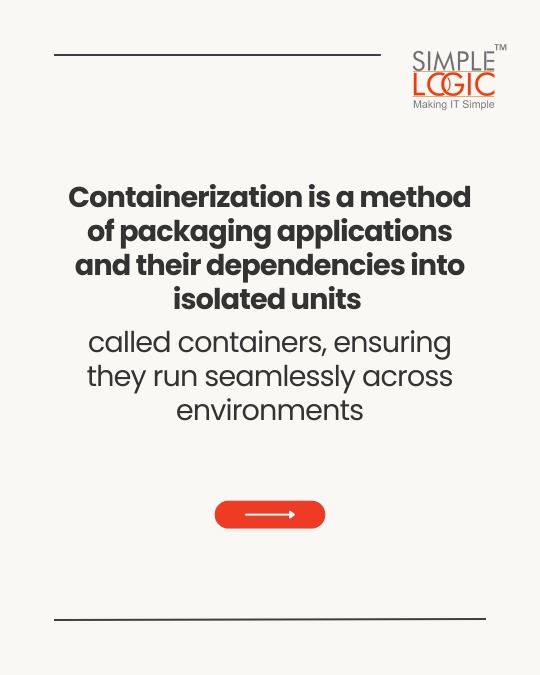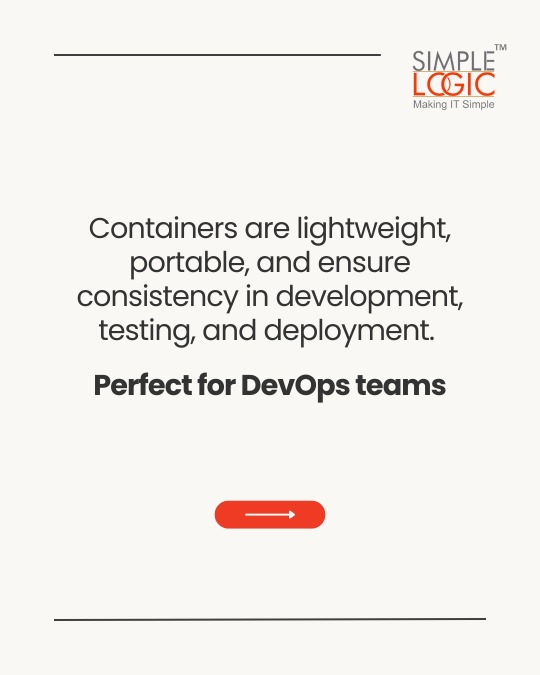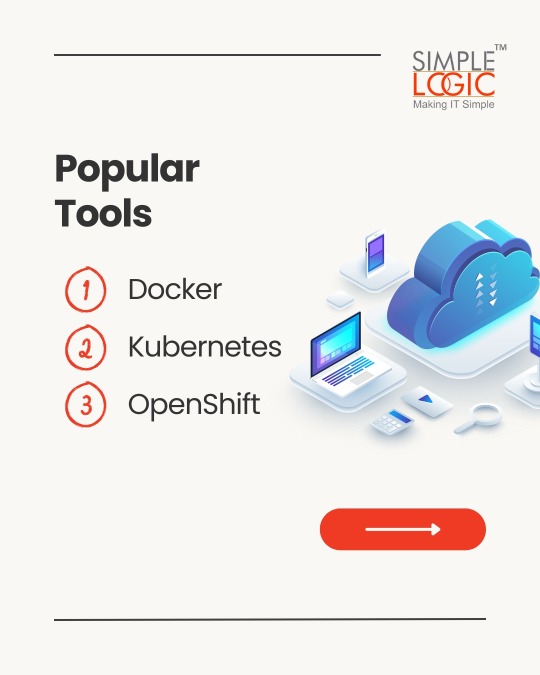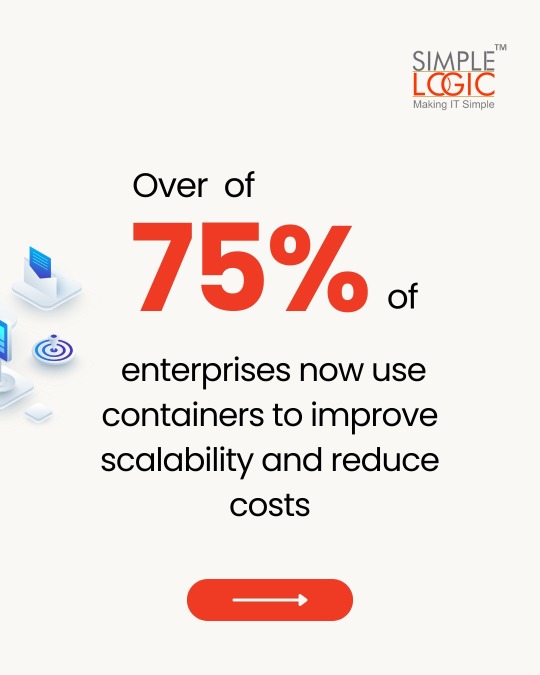#DevOps Deployment
Explore tagged Tumblr posts
Text
1 note
·
View note
Text
#cloud services#devops solutions#cloud computing#infrastructure automation#CI/CD pipeline#cloud and devops services#cloud migration#enterprise devops#cloud security#cloud-native development#cloud deployment services#continuous delivery#cloud consulting services#managed cloud services#devops consulting company#hybrid cloud solutions#cloud optimization#instep technologies
0 notes
Text
The Role of DevOps in Custom Software Deployment

In today’s fast-paced digital ecosystem, the success of any software product is determined not just by how well it's coded, but how efficiently and reliably it’s delivered to end-users. This is where DevOps—the fusion of development and operations—plays a transformative role.
For businesses working with a custom software development company in New York, DevOps is no longer an optional methodology—it’s a competitive necessity. From speeding up deployment cycles to improving reliability, security, and scalability, DevOps practices streamline the entire software delivery pipeline.
In this blog, we’ll explore the critical role of DevOps in custom software deployment, the advantages it offers, and how software development companies in New York are leveraging DevOps to deliver faster, smarter, and more resilient digital solutions.
What Is DevOps?
DevOps is a set of practices and tools that bridge the gap between software development (Dev) and IT operations (Ops). Its primary goal is to shorten the development lifecycle, increase deployment frequency, and deliver high-quality software in a repeatable and automated way.
This is accomplished through key principles such as:
Continuous Integration (CI)
Continuous Delivery/Deployment (CD)
Infrastructure as Code (IaC)
Automated testing
Monitoring and logging
The best custom software development companies in New York integrate these practices into their workflows to reduce downtime, prevent deployment bottlenecks, and foster innovation.
DevOps in Custom Software: Why It Matters
Unlike off-the-shelf software, custom solutions are tailor-made for specific business needs. They require greater agility, flexibility, and ongoing refinement—all of which are supported by a robust DevOps approach.
Here’s why DevOps is especially vital in custom software projects:
1. Faster Time-to-Market
Speed is crucial in today’s competitive digital space. DevOps enables rapid iterations, automated testing, and continuous deployments—ensuring that new features and bug fixes go live faster.
For example, a software development company in New York using DevOps can deliver weekly or even daily updates, significantly reducing the time it takes to respond to user feedback or market demands.
2. Higher Quality Code
Automated testing and code integration tools allow developers to catch bugs early in the development cycle. This leads to fewer production issues and better software quality overall.
The top software development companies in New York use automated quality gates, unit tests, and peer code reviews integrated into the CI/CD pipeline, ensuring every code release meets strict standards.
3. Scalability and Flexibility
As businesses grow, their software needs to scale accordingly. DevOps supports scalability through containerization (like Docker), orchestration tools (like Kubernetes), and cloud-native deployment models.
Working with a custom software development company in New York that understands cloud and DevOps architecture means your software can grow seamlessly with your business needs.
Key DevOps Practices That Support Deployment
To understand the true value of DevOps in deployment, it’s important to dive deeper into the specific practices that make it effective.
1. Continuous Integration (CI)
CI involves automatically merging all developer working copies to a shared mainline several times a day. This enables early bug detection, reduced integration issues, and a smoother development workflow.
Custom software development companies in New York often integrate tools like Jenkins, GitLab CI, or CircleCI to automate builds and ensure code is always in a deployable state.
2. Continuous Deployment (CD)
Continuous Deployment automates the release process so that any code passing all tests is immediately deployed to production. This creates a cycle of fast and reliable releases.
This is particularly useful for industries like fintech or e-commerce, where downtime or bugs can result in serious revenue loss. A software development company in New York using CD can deploy features safely and frequently without compromising performance.
3. Infrastructure as Code (IaC)
IaC allows infrastructure (like servers, load balancers, and databases) to be managed through code, making environments consistent and reproducible. Tools like Terraform and Ansible are widely used.
The best software development company in New York will use IaC to reduce human error, enable version control of infrastructure, and simplify environment replication across dev, test, and production.
4. Monitoring and Feedback Loops
DevOps emphasizes continuous monitoring of application performance and infrastructure health using tools like Prometheus, Grafana, and ELK Stack.
With these insights, custom software development companies in New York can proactively identify issues, analyze usage trends, and optimize applications to improve user experience.
DevOps for Custom Software Clients: What to Expect
When working with a DevOps-enabled software development company in New York, clients can expect the following:
1. Transparent Release Processes
Frequent, scheduled releases replace traditional “big-bang” launches. You’re always aware of what’s being deployed and when, with detailed changelogs and documentation.
2. Reduced Downtime
Through canary releases, blue-green deployments, and automated rollback mechanisms, DevOps minimizes the risk of outages during updates.
3. More Reliable Support
DevOps fosters a culture of accountability. Developers monitor how their code performs in production and fix issues promptly—ensuring a more stable product lifecycle.
4. Custom Dashboards and Metrics
Get real-time visibility into your application’s health, user engagement, and server performance with custom dashboards tailored to your KPIs.
The top software development company in New York will customize these tools for your business model, giving you actionable insights at a glance.
Why DevOps Is a Competitive Edge
In industries like finance, healthcare, retail, and logistics, speed and stability aren’t just nice-to-haves—they're vital. DevOps offers:
Accelerated innovation: Quickly test and implement new ideas.
Enhanced security: Apply security policies and patches faster.
Customer satisfaction: Deliver bug-free features continuously.
Operational efficiency: Automate repetitive tasks to focus on high-value work.
For companies looking to stand out, partnering with a custom software development company in New York that champions DevOps is an investment in agility and excellence.
Choosing the Right DevOps-Enabled Software Partner
Not every software firm embraces DevOps, and not every team does it well. Here’s what to look for:
DevOps toolchain expertise (Git, Jenkins, Docker, Kubernetes)
Experience with cloud platforms (AWS, Azure, Google Cloud)
Track record of CI/CD pipelines
Commitment to security and compliance
24/7 monitoring and support
The best software development company in New York will have proven case studies, client testimonials, and a clear DevOps roadmap that aligns with your vision.
Final Thoughts
DevOps has redefined the way custom software is developed, deployed, and maintained. It promotes agility, reliability, and collaboration—three pillars essential for long-term software success.
In a city as competitive and innovation-driven as New York, choosing the right partner is crucial. Whether you’re a startup disrupting your industry or an enterprise modernizing legacy systems, working with a custom software development company in New York that fully embraces DevOps can give you a decisive edge.
If you want continuous improvement, faster delivery cycles, and robust deployment processes, look no further than the top software development company in New York. They don’t just build software—they deliver future-ready solutions that evolve with your business.
#custom software development company in new york#software development company in new york#custom software development companies in new york#top software development company in new york#best software development company in new york#The Role of DevOps in Custom Software Deployment
0 notes
Text
"Continuous Delivery" by Jez Humble and David Farley is a seminal book that provides a comprehensive guide to achieving reliable, rapid, and repeatable software delivery. The book outlines principles, practices, and techniques that enable teams to deliver high-quality software efficiently. Below is a user-friendly, step-by-step breakdown of the key outcomes and takeaways from the book, designed to help readers understand and implement continuous delivery effectively.
#ContinuousDelivery#DevOps#SoftwareDevelopment#Automation#CI/CD#Deployment#ContinuousIntegration#Agile#SoftwareEngineering#AutomationTesting#DevOpsCulture#ReleaseManagement#DevOpsPractices#DeploymentPipeline#SoftwareRelease#AutomationTools#AgileDevelopment#TechTrends#DevOpsTools#ContinuousDeployment#InfrastructureAsCode#BuildAutomation#SoftwareTesting#TechTutorial#CloudComputing#ITOperations
0 notes
Video
youtube
🏗️ Terraform on AWS – Infrastructure as Code Explained! 🏗️
#youtube#In this tutorial we explore how Terraform empowers DevOps engineers and developers to fully automate infrastructure deployment on AWS. 🔥 W
0 notes
Text
0 notes
Text






#TechKnowledge Have you heard of Containerization?
Swipe to discover what it is and how it can impact your digital security! 🚀
👉 Stay tuned for more simple and insightful tech tips by following us.
🌐 Learn more: https://simplelogic-it.com/
💻 Explore the latest in #technology on our Blog Page: https://simplelogic-it.com/blogs/
✨ Looking for your next career opportunity? Check out our #Careers page for exciting roles: https://simplelogic-it.com/careers/
#techterms#technologyterms#techcommunity#simplelogicit#makingitsimple#techinsight#techtalk#containerization#application#development#testing#deployment#devops#docker#kubernets#openshift#scalability#security#knowledgeIispower#makeitsimple#simplelogic#didyouknow
0 notes
Text
#AI in full-stack development#AI code assistants#AI-powered tools#DevOps in full-stack development#CI/CD automation#Continuous deployment
0 notes
Text

What Are Artifacts in Software Development?
In the world of DevOps & CI/CD, artifacts play a crucial role! Master CI/CD & DevOps with Azure Trainings and elevate your IT career! Call: +91 98824 98844 Learn More: www.azuretrainings.in
#SoftwareDevelopment#Artifacts#DevOps#AzureTraining#CICD#CloudComputing#SoftwareEngineering#Automation#TechLearning#ITCareer#LearnWithExperts#AzureDevOps#Deployment#CodingLife#VersionControl
0 notes
Text
youtube
AWS EKS | Episode 10 | ReplicaSets, Deployments and Services in Kubernetes | Lets discuss.
1 note
·
View note
Text
Optimizing Azure Container App Deployments: Best Practices for Pipelines & Security
🚀 Just shared a new blog on boosting Azure Container App deployments! Dive into best practices for Continuous Deployment, choosing the right agents, and securely managing variables. Perfect for making updates smoother and safer!
In the fifth part of our series, we explored how Continuous Deployment (CD) pipelines and revisions bring efficiency to Azure Container Apps. From quicker feature rollouts to minimal downtime, CD ensures that you’re not just deploying updates but doing it confidently. Now, let’s take it a step further by optimizing deployments using Azure Pipelines. In this part, we’ll dive into the nuts and…
#Agent Configuration#app deployment#Azure Container Apps#Azure Pipelines#CI/CD#Cloud Applications#Cloud Security#continuous deployment#Deployment Best Practices#DevOps#microsoft azure#Pipeline Automation#Secure Variables
0 notes
Text
Building Your Serverless Sandbox: A Detailed Guide to Multi-Environment Deployments (or How I Learned to Stop Worrying and Love the Cloud)
Introduction Welcome, intrepid serverless adventurers! In the wild world of cloud computing, creating a robust, multi-environment deployment pipeline is crucial for maintaining code quality and ensuring smooth transitions from development to production.Here is part 1 and part 2 of this series. Feel free to read them before continuing on. This guide will walk you through the process of setting…
#automation#aws#AWS S3#CI/CD#Cloud Architecture#cloud computing#cloud security#continuous deployment#DevOps#GitLab#GitLab CI#IAM#Infrastructure as Code#multi-environment deployment#OIDC#pipeline optimization#sandbox#serverless#software development#Terraform
0 notes
Text
Deploying a MERN (MongoDB, Express, React, Node.js) stack application is a crucial step to make your app accessible to users. Choosing the right deployment platform depends on your needs:
AWS (Amazon Web Services) is ideal for scalable, high-performance applications.
Vercel is great for quick and easy deployment, especially for frontend applications.
In this guide, we will walk through deploying a MERN stack application on AWS (using EC2 and S3) and Vercel (for serverless hosting).
#MERNStack#AWS#Vercel#Deployment#FullStackDevelopment#WebDevelopment#NodeJS#MongoDB#ExpressJS#React#AWSDeployment#VercelDeployment#CloudHosting#CloudComputing#WebAppDeployment#DevOps#CI/CD#Serverless#Heroku#AWSAmplify#FrontendDevelopment#BackendDevelopment#AppDeployment#ReactApp#MongoDBIntegration#MERNApp#DeploymentGuide#AWSHosting#VercelHosting#WebAppHosting
0 notes
Text
The role of MLSecOps in the future of AI and ML
New Post has been published on https://thedigitalinsider.com/the-role-of-mlsecops-in-the-future-of-ai-and-ml/
The role of MLSecOps in the future of AI and ML

Having just spent some time in reviewing and learning further about MLSecOps (Fantastic Course on LinkedIn by Diana Kelley) I wanted to share my thoughts on the rapidly evolving landscape of technology, the integration of Machine Learning (ML) and Artificial Intelligence (AI) has revolutionized numerous industries.
However, this transformative power also comes with significant security challenges that organizations must address. Enter MLSecOps, a holistic approach that combines the principles of Machine Learning, Security, and DevOps to ensure the seamless and secure deployment of AI-powered systems.
The state of MLSecOps today
As organizations continue to harness the power of ML and AI, many are still playing catch-up when it comes to implementing robust security measures. In a recent survey, it was found that only 34% of organizations have a well-defined MLSecOps strategy in place. This gap highlights the pressing need for a more proactive and comprehensive approach to securing AI-driven systems.
Key challenges in existing MLSecOps implementations
1. Lack of visibility and transparency: Many organizations struggle to gain visibility into the inner workings of their ML models, making it difficult to identify and address potential security vulnerabilities.
2. Insufficient monitoring and alerting: Traditional security monitoring and alerting systems are often ill-equipped to detect and respond to the unique risks posed by AI-powered applications.
3. Inadequate testing and validation: Rigorous testing and validation of ML models are crucial to ensuring their security, yet many organizations fall short in this area.
4. Siloed approaches: The integration of ML, security, and DevOps teams is often a significant challenge, leading to suboptimal collaboration and ineffective implementation of MLSecOps.
5. Compromised ML models: If an organization’s ML models are compromised, the consequences can be severe, including data breaches, biased decision-making, and even physical harm.
6. Securing the supply chain: Ensuring the security and integrity of the supply chain that supports the development and deployment of ML models is a critical, yet often overlooked, aspect of MLSecOps.

The imperative for embracing MLSecOps
The importance of MLSecOps cannot be overstated. As AI and ML continue to drive innovation and transformation, the need to secure these technologies has become paramount. Adopting a comprehensive MLSecOps approach offers several key benefits:
1. Enhanced security posture: MLSecOps enables organizations to proactively identify and mitigate security risks inherent in ML-based systems, reducing the likelihood of successful attacks and data breaches.
2. Improved model resilience: By incorporating security testing and validation into the ML model development lifecycle, organizations can ensure the robustness and reliability of their AI-powered applications.
3. Streamlined deployment and maintenance: The integration of DevOps principles in MLSecOps facilitates the continuous monitoring, testing, and deployment of ML models, ensuring they remain secure and up-to-date.
4. Increased regulatory compliance: With growing data privacy and security regulations, a robust MLSecOps strategy can help organizations maintain compliance and avoid costly penalties.
Potential reputational and legal implications
The failure to implement effective MLSecOps can have severe reputational and legal consequences for organizations:
1. Reputational damage: A high-profile security breach or incident involving compromised ML models can severely damage an organization’s reputation, leading to loss of customer trust and market share.
2. Legal and regulatory penalties: Noncompliance with data privacy and security regulations can result in substantial fines and legal liabilities, further compounding the financial impact of security incidents.
3. Liability concerns: If an organization’s AI-powered systems cause harm due to security vulnerabilities, the organization may face legal liabilities and costly lawsuits from affected parties.
Key steps to implementing effective MLSecOps
1. Establish cross-functional collaboration: Foster a culture of collaboration between ML, security, and DevOps teams to ensure a holistic approach to securing AI-powered systems.
2. Implement comprehensive monitoring and alerting: Deploy advanced monitoring and alerting systems that can detect and respond to security threats specific to ML models and AI-driven applications.
3. Integrate security testing into the ML lifecycle: Incorporate security testing, including adversarial attacks and model integrity checks, into the development and deployment of ML models.
4. Leverage automated deployment and remediation: Automate the deployment, testing, and remediation of ML models to ensure they remain secure and up-to-date.
5. Embrace explainable AI: Prioritize the development of interpretable and explainable ML models to enhance visibility and transparency, making it easier to identify and address security vulnerabilities.
6. Stay ahead of emerging threats: Continuously monitor the evolving landscape of AI-related security threats and adapt your MLSecOps strategy accordingly.
7. Implement robust incident response and recovery: Develop and regularly test incident response and recovery plans to ensure organizations can quickly and effectively respond to compromised ML models.
8. Educate and train employees: Provide comprehensive training to all relevant stakeholders, including developers, security personnel, and end-users, to ensure a unified understanding of MLSecOps principles and best practices.
9. Secure the supply chain: Implement robust security measures to ensure the integrity of the supply chain that supports the development and deployment of ML models, including third-party dependencies and data sources.
10. Form violet teams: Establish dedicated “violet teams” (a combination of red and blue teams) to proactively search for and address vulnerabilities in ML-based systems, further strengthening the organization’s security posture.

The future of MLSecOps: Towards a proactive and intelligent approach
As the field of MLSecOps continues to evolve, we can expect to see the emergence of more sophisticated and intelligent security solutions. These may include:
1. Autonomous security systems: AI-powered security systems that can autonomously detect, respond, and remediate security threats in ML-based applications.
2. Federated learning and secure multi-party computation: Techniques that enable secure model training and deployment across distributed environments, enhancing the privacy and security of ML systems.
3. Adversarial machine learning: The development of advanced techniques to harden ML models against adversarial attacks, ensuring their resilience in the face of malicious attempts to compromise their integrity.
4. Continuous security validation: The integration of security validation as a continuous process, with real-time monitoring and feedback loops to ensure the ongoing security of ML models.
By embracing the power of MLSecOps, organizations can navigate the complex and rapidly evolving landscape of AI-powered technologies with confidence, ensuring the security and resilience of their most critical systems, while mitigating the potential reputational and legal risks associated with security breaches.
Have access to hundreds of hours of talks by AI experts OnDemand.
Sign up for our Pro+ membership today.
AI Accelerator Institute Pro+ membership
Unlock the world of AI with the AI Accelerator Institute Pro Membership. Tailored for beginners, this plan offers essential learning resources, expert mentorship, and a vibrant community to help you grow your AI skills and network. Begin your path to AI mastery and innovation now.

#Adversarial attacks#ai#ai skills#AI-powered#applications#approach#artificial#Artificial Intelligence#autonomous#Blue#breach#challenge#Collaboration#Community#compliance#comprehensive#compromise#computation#continuous#course#data#Data Breaches#data privacy#data privacy and security#deployment#developers#development#Devops#employees#Explainable AI
0 notes
Text
Master DevOps: Your Complete Guide and Roadmap | DevOps Online Training

Introduction to DevOps
In today's rapidly evolving technological landscape, the need for streamlined and efficient software development practices has never been greater. Enter DevOps—a culture, philosophy, and set of practices that bring development (Dev) and operations (Ops) together to improve collaboration, integration, and automation throughout the software development lifecycle. DevOps is not just a buzzword; it's a transformative approach that enables organizations to deliver high-quality software faster and more reliably. If you're looking to build a career in this field, DevOps Online Training is your gateway to mastering the skills required to excel in this domain.
What is DevOps?
DevOps is a combination of practices, tools, and cultural philosophies designed to increase an organization's ability to deliver applications and services at high velocity. By breaking down the traditional silos between development and operations teams, DevOps fosters a culture of collaboration, where both teams work together throughout the entire software development lifecycle. This collaboration leads to faster development, more frequent deployment of updates, and higher overall software quality.
At its core, DevOps emphasizes automation, continuous integration, continuous delivery (CI/CD), and monitoring. The goal is to minimize manual intervention, reduce errors, and improve the efficiency of software development and deployment. Through DevOps Online Training, you can learn how to implement these practices in real-world scenarios, making you an invaluable asset to any tech organization.
How DevOps Works
DevOps is built on a set of principles and practices that enable organizations to build, test, and deploy software rapidly and efficiently. Here's how DevOps works in practice:
1. Continuous Integration and Continuous Deployment (CI/CD)
Continuous Integration (CI) is the practice of merging code changes frequently, often multiple times a day, into a shared repository. Automated testing is then conducted to identify and resolve issues early in the development process. Continuous Deployment (CD) takes this a step further by automatically deploying code changes to production after passing the CI pipeline. Together, CI/CD reduces the time between writing code and delivering it to customers, ensuring that software updates are released frequently and reliably.
2. Automation
Automation is a critical component of DevOps. From building and testing code to deploying and monitoring applications, automation helps streamline the entire software development lifecycle. By automating repetitive tasks, teams can focus on more strategic activities, such as optimizing code and improving system performance. Automation tools like Jenkins, Ansible, and Puppet are commonly used in DevOps to create efficient, repeatable processes.
3. Infrastructure as Code (IaC)
Infrastructure as Code (IaC) is the practice of managing and provisioning computing infrastructure through machine-readable scripts rather than manual processes. This approach allows teams to automate the setup and configuration of environments, ensuring consistency across development, testing, and production stages. Tools like Terraform and AWS CloudFormation are popular choices for implementing IaC.
4. Monitoring and Logging
Effective monitoring and logging are essential to maintaining the health and performance of applications in a DevOps environment. By continuously monitoring systems and capturing logs, teams can identify and resolve issues before they impact end-users. Tools like Prometheus, Grafana, and ELK Stack are widely used for monitoring and logging in DevOps.
5. Collaboration and Communication
DevOps is as much about culture as it is about technology. A key aspect of DevOps is fostering a culture of collaboration and communication between development, operations, and other stakeholders. This collaboration ensures that everyone is aligned with the project's goals and that issues are addressed quickly. Tools like Slack, Microsoft Teams, and Jira facilitate communication and collaboration in a DevOps environment.
6. Security in DevOps (DevSecOps)
As security becomes increasingly important in software development, DevOps practices have evolved to include security as a core component. DevSecOps integrates security into every stage of the software development lifecycle, ensuring that security vulnerabilities are identified and addressed early in the process. By adopting DevSecOps practices, organizations can build more secure applications without compromising on speed and agility.
The Roadmap to Becoming a DevOps Engineer
Becoming a DevOps engineer requires a combination of technical skills, practical experience, and a deep understanding of DevOps principles. Here's a step-by-step roadmap to guide you on your journey:
1. Understand the Basics of DevOps
Before diving into specific tools and technologies, it's important to understand the fundamental principles of DevOps. Learn about the core concepts of CI/CD, automation, IaC, and monitoring. DevOps Online Training can provide you with a solid foundation in these areas, helping you grasp the essential elements of DevOps.
2. Gain Proficiency in Programming and Scripting
A strong foundation in programming and scripting is essential for a DevOps engineer. Start by learning a programming language like Python, Ruby, or Go, as well as scripting languages like Bash or PowerShell. These skills will enable you to automate tasks, write custom scripts, and work with various DevOps tools.
3. Master Version Control Systems
Version control systems (VCS) like Git are critical to DevOps practices. Learn how to use Git for version control, branching, and merging code. Understand how to collaborate with other developers using GitHub, GitLab, or Bitbucket. Version control is a fundamental skill that every DevOps engineer must possess.
4. Get Hands-On with CI/CD Tools
CI/CD is at the heart of DevOps, so gaining hands-on experience with CI/CD tools is crucial. Learn how to set up and configure Jenkins, CircleCI, or Travis CI to automate the build, test, and deployment processes. DevOps Online Training often includes practical labs and exercises that allow you to practice using these tools in real-world scenarios.
5. Learn About Infrastructure as Code (IaC)
IaC is a key practice in DevOps, enabling teams to manage and provision infrastructure programmatically. Familiarize yourself with IaC tools like Terraform, AWS CloudFormation, and Ansible. Learn how to write scripts that automate the creation and configuration of infrastructure, ensuring consistency across environments.
6. Develop Cloud Computing Skills
Cloud computing is an integral part of DevOps, as it provides the scalability and flexibility needed for modern software development. Gain proficiency in cloud platforms like AWS, Azure, or Google Cloud. Learn how to deploy applications to the cloud, manage cloud resources, and work with cloud-based DevOps tools.
7. Enhance Your Automation Skills
Automation is a cornerstone of DevOps, so it's essential to master automation tools and techniques. Learn how to automate tasks using tools like Jenkins, Puppet, and Chef. Understand how to create automated workflows that integrate with other DevOps tools and processes.
8. Learn About Monitoring and Logging
Effective monitoring and logging are crucial for maintaining the health of applications in a DevOps environment. Familiarize yourself with monitoring tools like Prometheus and Grafana, as well as logging tools like the ELK Stack. Learn how to set up monitoring dashboards, create alerts, and analyze logs to identify and resolve issues.
9. Embrace DevSecOps Practices
Security is a critical aspect of DevOps, and understanding DevSecOps practices is essential for a successful career in this field. Learn how to integrate security into the CI/CD pipeline, conduct security testing, and implement security best practices throughout the software development lifecycle.
10. Gain Practical Experience
Theory alone is not enough to become a proficient DevOps engineer. Hands-on experience is crucial. Work on real-world projects, contribute to open-source DevOps projects, or participate in internships. Practical experience will help you apply the skills you've learned and build a portfolio that showcases your expertise.
11. Obtain DevOps Certifications
Certifications can validate your skills and make you stand out in the job market. Consider obtaining certifications like AWS Certified DevOps Engineer, Google Cloud DevOps Engineer, or Microsoft Certified: Azure DevOps Engineer Expert. These certifications demonstrate your proficiency in DevOps practices and tools.
12. Stay Updated with Industry Trends
The field of DevOps is constantly evolving, with new tools and practices emerging regularly. Stay updated with industry trends by reading blogs, attending conferences, and participating in online communities. DevOps Online Training programs often include updates on the latest trends and tools in the industry.
13. Build a Strong Professional Network
Networking is important in any career, and DevOps is no exception. Join DevOps communities, attend meetups, and connect with other professionals in the field. Building a strong network can lead to job opportunities, collaborations, and valuable insights.
14. Prepare for DevOps Interviews
As you near the end of your learning journey, it's time to prepare for DevOps interviews. Practice common DevOps interview questions, participate in mock interviews, and review your projects and experiences. DevOps Online Training programs often include interview preparation sessions to help you succeed in landing your first DevOps job.
Conclusion
DevOps is a powerful approach that has revolutionized the way software is developed, tested, and deployed. By fostering collaboration between development and operations teams and leveraging automation, CI/CD, and cloud computing, DevOps enables organizations to deliver high-quality software at a rapid pace. Whether you're just starting your career or looking to transition into the field, DevOps Online Training can provide you with the skills and knowledge needed to succeed as a DevOps engineer.
By following the roadmap outlined in this article, you can develop the technical expertise, practical experience, and industry knowledge required to excel in DevOps. Remember to stay updated with the latest trends, build a strong network, and continuously improve your skills.
#devops#devopsonlinetraining#devops engineer#DevOps Roadmap#web development#development#software#Continuous Integration#Continuous Deployment#Cloud Computing#Automation#Software Development#IT Training#cicd#it training institute#it training courses#it training classes
0 notes
Text
Scaling Node.js Applications with PM2
Scaling Node.js Applications with PM2: A Comprehensive Guide
Introduction As your Node.js application grows, you may need to scale it to handle increased traffic and ensure reliability. PM2 (Process Manager 2) is a powerful process manager for Node.js applications that simplifies deployment, management, and scaling. It provides features such as process monitoring, log management, and automatic restarts, making it an essential tool for production…
#application scaling#deployment#DevOps practices#monitoring#Node.js#Node.js scaling#PM2#process management#web development
0 notes